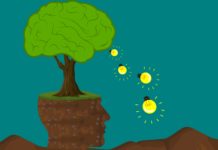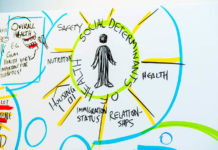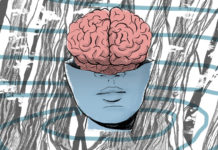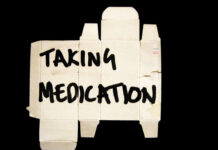Hearing Veteran Narratives is Key to Suicide Prevention
Current suicide assessment practices of the VA are reductive and do not allow for the individual’s narrative to be heard.
Effects of Exercise on Depression Underestimated, Review Finds
A new meta-analysis finds that the large antidepressant effects of exercise may have been underestimated in previous reviews. This latest report, published this month...
Increasing Physical Activity in Schools May Improve Mental Health
A new article suggests integrating physical activity throughout the day may help to address the mental health of students.
New Evidence for Brain-Gut Link in Depression and Quality of Life
The first ever population-level study of the brain-gut connection in humans finds evidence for a link between gut bacteria and mental health.
Are Students Benefiting From the Growth Mindset Model?
Results from two meta-analyses reveal shortcomings with the growth mindset theory as applied in schools.
What is Contributory Injustice in Psychiatry?
An article on contributory injustice describes the clinical and ethical imperative that clinicians listen to service users experiences.
Searching for a Rose Garden: Challenging Psychiatry, Fostering Mad Studies
Searching for a Rose Garden:
Challenging Psychiatry, Fostering Mad Studies is a timely and unique collection of essays that should be of interest to anyone with personal experience with, or research interests in, mental difference, psychiatrization and its resistance.
Is There an Optimal Sleep Duration for Adolescents?
A new study finds ideal sleep duration differs in adolescents for peak mental health and academic outcomes.
Research Finds Parents’ Trauma May Impact Children’s Health
Study uncovers some of the intergenerational consequences of adverse childhood experiences (ACEs).
Madness and the Family, Part III: Practical Methods for Transforming Troubled Family Systems
We are profoundly social beings living not as isolated individuals but as integral members of interdependent social systems—our nuclear family system, and the broader social systems of extended family, peers, our community and the broader society. Therefore, psychosis and other forms of human distress often deemed “mental illness” are best seen not so much as something intrinsically “wrong” or “diseased” within the particular individual who is most exhibiting that distress, but rather as systemic problems that are merely being channeled through this individual.
Psychological Interventions Can Help When Tapering Off Antidepressants
Meta-analysis of antidepressant tapering finds CBT and MBCT can aid in tapering, but limited studies met inclusion criteria.
Study Explores Impact of Urban vs. Rural Upbringing on Stress Response
A new study investigates the relationships between early-home environmental factors and later-life physiological response to psychosocial stressors.
A Social Psychiatry Manifesto that Takes Social Context Seriously
A re-visioned approach to social psychiatry aims to understand the broad influence of social life on mental health.
Researchers Call for Transparency About Limits of Psychiatric Knowledge
A new paper explores how the disputed nature of psychiatric knowledge influences public perceptions and debates within the field of mental health.
Massage Therapy May Be Useful in Treating Symptoms of Anxiety
The study finds that twice-weekly massage therapy may be a useful alternative treatment for anxiety in terms of reducing both, psychological and somatic symptoms.
Psychiatry in Need of “Fundamental Rethinking”
Prominent researchers in psychiatry urge the field to move away from a rigid biological focus toward social and psychological perspectives to meet the needs of today’s world.
Who is at Risk for Psychosis?
A report conducted by UK-based researchers indicates that rates of psychosis tend to be higher in ethnic minority groups and in individuals from lower socioeconomic backgrounds.
Racism Linked to Poor Health Outcomes in Children
New study finds children who have been exposed to discrimination show higher likelihood of anxiety, depression, and ADHD.
New Traction for Art Therapy as a Treatment for Depression
New study investigates the acceptability of a phenomenologically informed, manual-based art therapy for clients diagnosed with moderate to severe depression.
Researchers Present Structural Competency Training Model for Psychiatrists
Researchers argue that a structural competency and social determinants of health approach must be made central to psychiatry training.
Animal Study Supports Influence of Probiotics on Resilience to Stress
Researchers experimenting on mice found that Lactobacillus—the probiotic commonly found in yogurt—may help reduce depressive symptoms in reaction to chronic stressors. But human studies have found mixed results.
Correcting Misconceptions of Trauma-informed Care with Survivor Perspectives
Trauma-informed approaches have the potential to promote recovery but must involve survivors and service-users to prevent the experience of retraumatization within psychiatric and mental health services.
Nutrition, Sleep, and Mental Health
It was somewhat surprising 15+ years ago when Bonnie first began to be challenged (by psychiatrists in particular, who are always being asked about adverse side effects) to answer this question: what are the side effects of taking a broad-spectrum formula? In all these ensuing years, the answer has not changed from her first observations: people repeatedly tell us that in addition to improved mental health and cognitive clarity, they sleep better and they experience relief of constipation. Now, finally, we have evidence for the first of those two ‘side effects’ in the form of an excellent study
Danish Study Finds Better 10-year Outcomes in Patients Off Antipsychotics
Study finds that 74% of patients with a psychotic disorder off antipsychotics at end of 10 years are in remission.
United Nations Statement Criticizes Medicalization of Depression on World Health Day
"There is a need of a shift in investments in mental health, from focusing on 'chemical imbalances' to focusing on 'power imbalances' and inequalities"






























